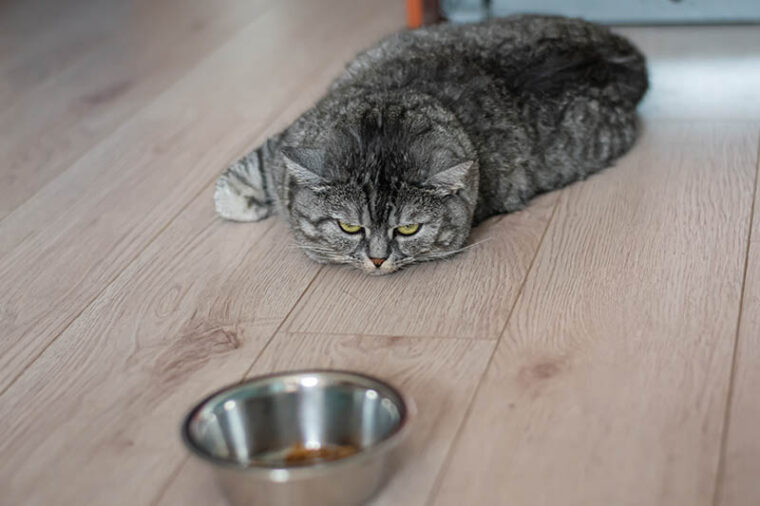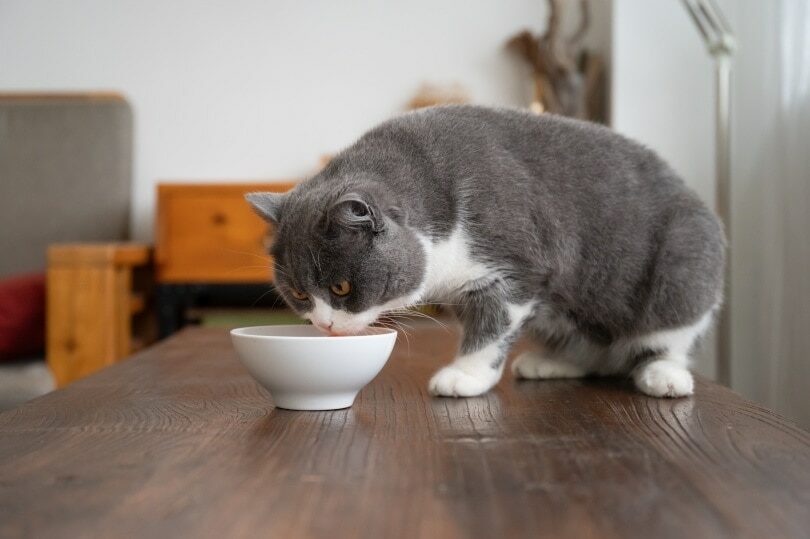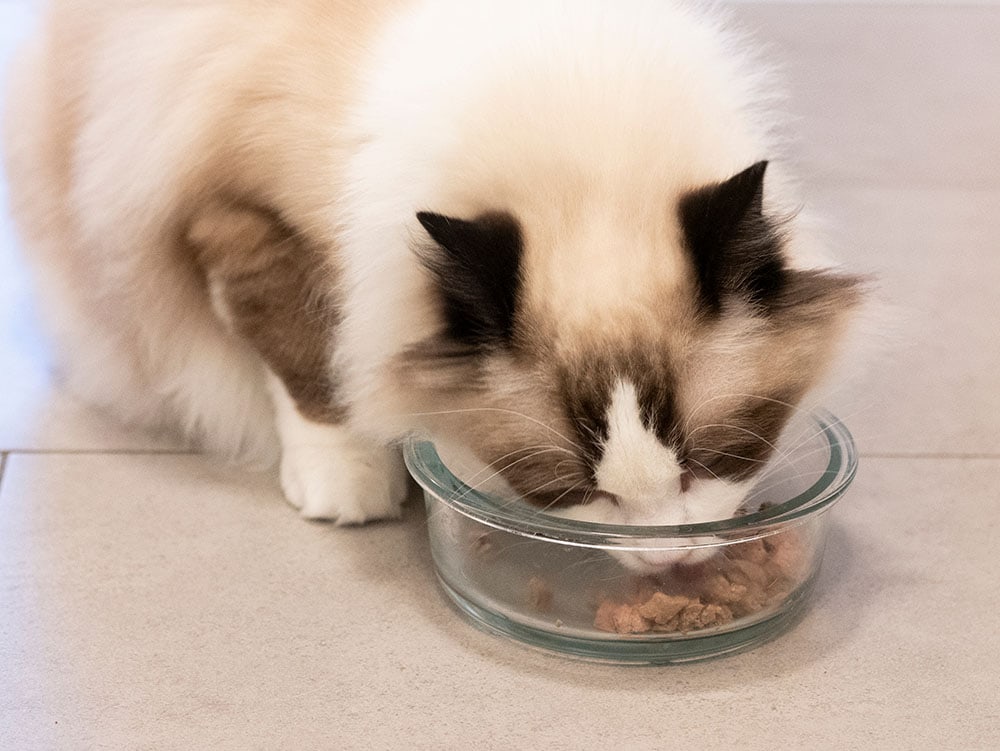
Cats are known for loving food and can be quite pesky when they are hungry. Their food tends to be gone really quickly as well. Does that mean that all cats are overeaters, or can some cats self-regulate? The answer to that question is tricky and will vary from cat to cat. No two cats are the same, and as a result, no two cats have the same eating habits. It is important to know if your cat is an overeater because overeating can be dangerous and have disastrous effects on your cat’s health. Many indoor cats either are or become overeaters because returning to the ever-full dry food plate becomes habitual behavior.
Do Cats Overeat?
Many cats overeat, but not all of them will. Overeating is usually the result of a variety of factors, including personality traits, past events, diet, activity level, and the environment. It is impossible to tell which cats are overeaters and which ones will self-regulate just by looking at them.

Factors That Cause Overeating
There are some key factors that are more likely to cause a cat to be an overeater. First, cats that live in a house with other animals, especially other cats, are more likely to overeat. When there is competition, it will cause cats to want to eat as much as they can to avoid losing food to another pet. That is doubly true if the other animals in the house are also overeaters because they will instantly try to eat any leftover food from your cat or try to steal it from their bowl. This behavior will cause a cat to become an overeater.
Some cats have events in their past that will cause them to overeat. Cats that have lived on the street or spent time in the shelter will often overeat out of fear of missing a meal. Kittens that were underfed or undernourished when they were very young might also carry a fear of missing out on food, causing them to overeat.
Dry cat food is typically lower in protein and higher in carbohydrates than a cat’s natural diet. Many cats fed exclusively dry food will overeat in search of the nutrients that their diet is not providing because they crave more protein.
Lastly, some cats simply like the taste of their food. If the cat has the right flavor pallet and the right temperament, it will simply eat too much because they like the taste of the food and enjoy the process of eating.
Signs of a Self-Regulator
It is fairly simple to tell if a cat is a self-regulator when it comes to their food. If you attempt to free feed your cat by leaving out ample amounts of food and they do not eat everything at once, they likely have some ability to regulate their food intake. Self-regulating cats will eat small amounts frequently throughout the day. They will be comfortable leaving food in their bowl and returning to eat it later. By comparison, overeaters will rarely feel comfortable leaving food in their bowl. Overeaters will eat as much as they can in one sitting.
You should not free feed overeating cats. You should only leave out food for cats that have the ability to regulate their eating habits. Otherwise, you should feed your cats carefully proportioned meals at regular times.

Dangers of Overeating
Many owners believe that if a cat is eating all of their food and asking for more it means that they are still hungry and need more food. However, that is not the case. It is dangerous to let cats overeat. Overeating often leads to being overweight, which then leads to ill health effects.
Cats that overeat are at risk of becoming obese. Obesity can cause many problems in cats, including joint pain, heart disease, diabetes, and cancer. Many of these side effects can cause lingering health problems that can usher in early death. The short-term effects of overeating can include nausea, vomiting, and lethargy.
Conclusion
Cats can self-regulate when it comes to eating, but many of them don’t. Many cats are overeaters. A variety of factors can cause a cat to overeat, including their environment, their past, and their personality. If your cat is an overeater, you should not free feed them or overfeed them. You should feed them regular proportioned meals. If you suspect your cat is a regulator, you can be more relaxed about your feeding routine but keep an eye out for signs of overeating so you can avoid overfeeding.
Featured Image Credit: Kitirinya, Shutterstock







